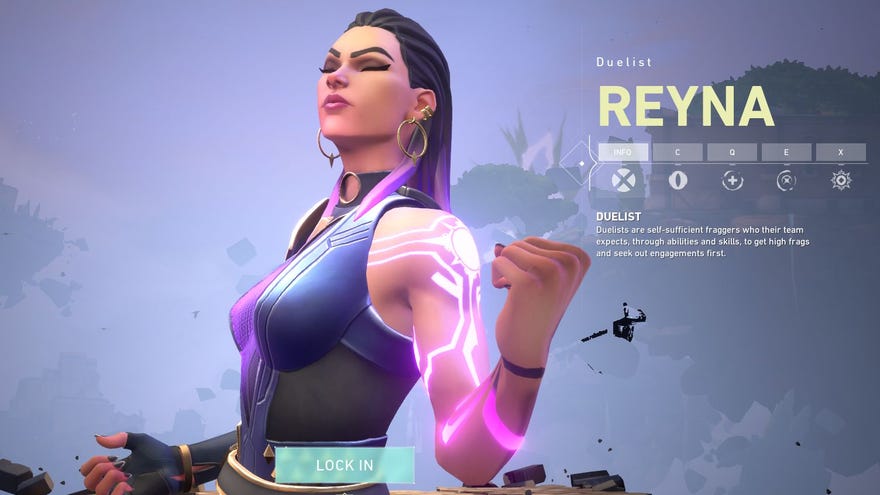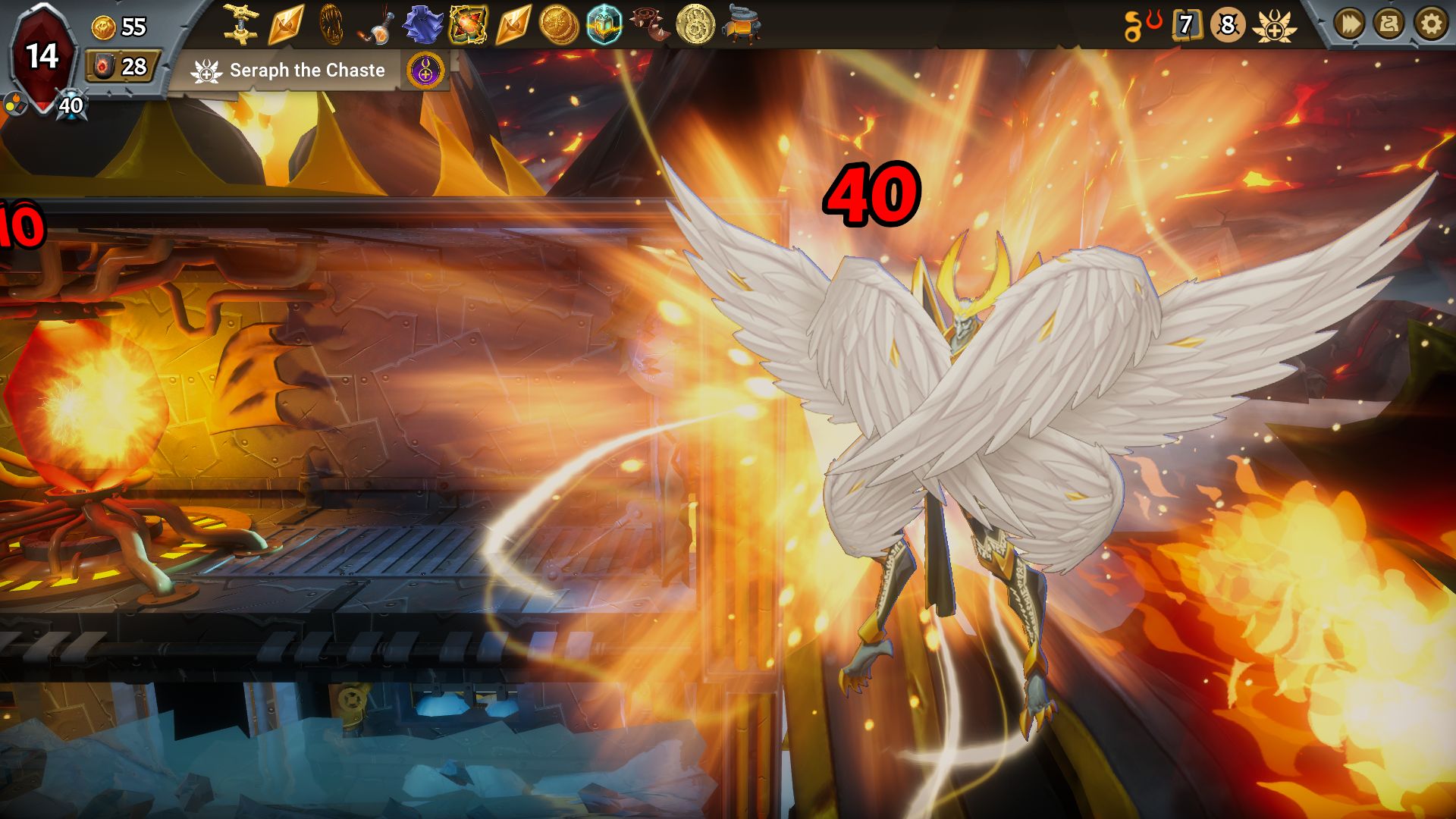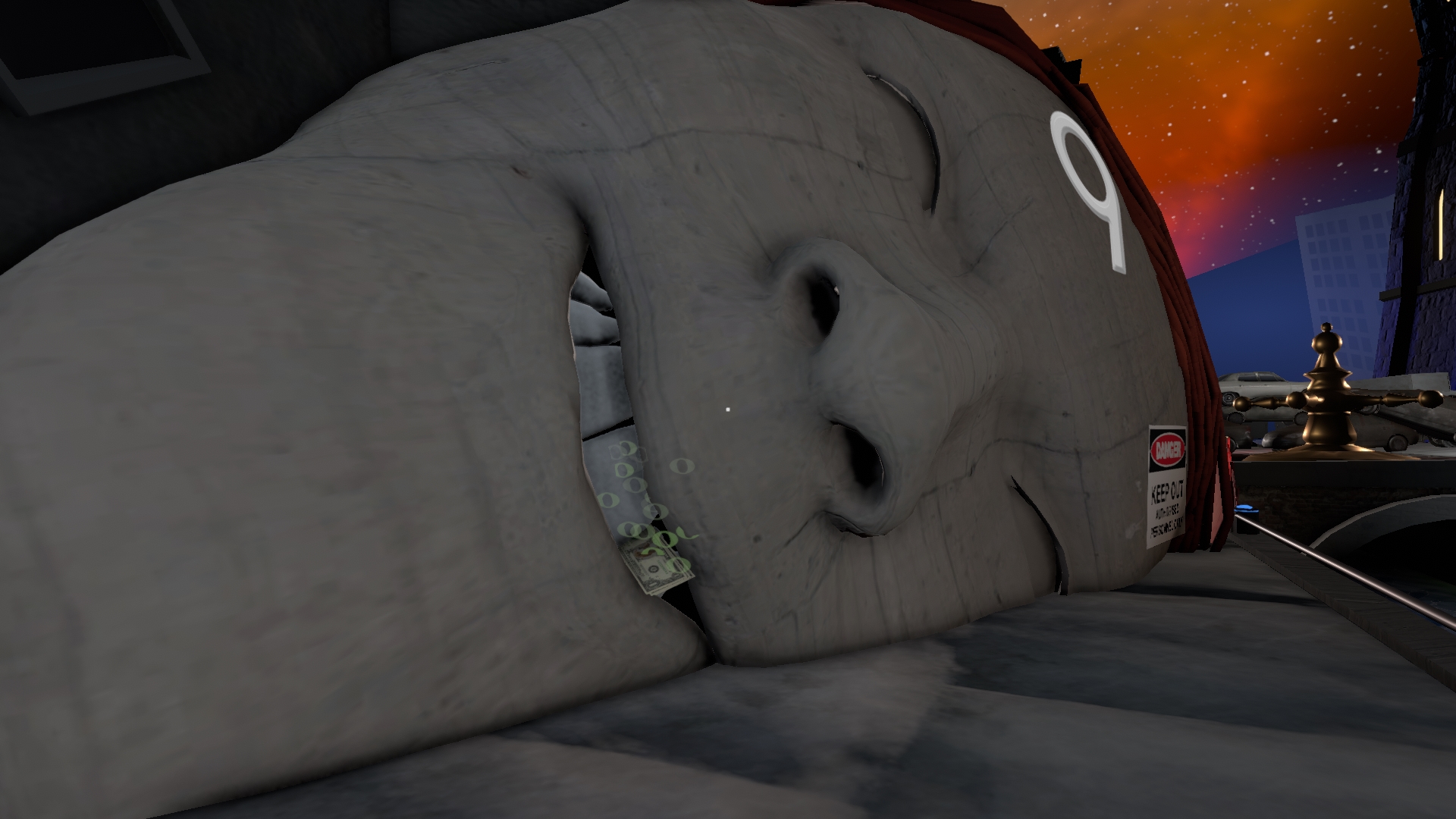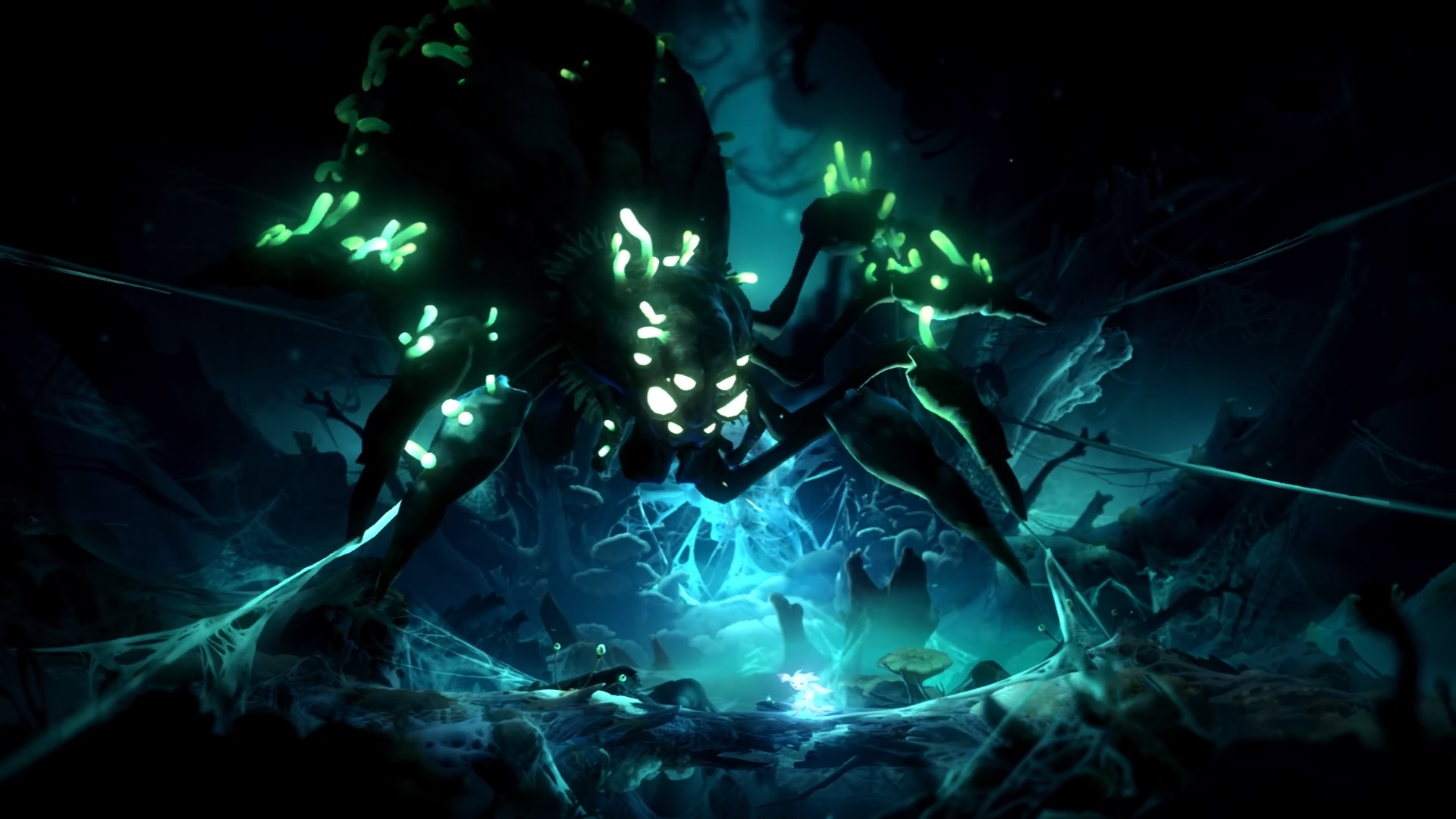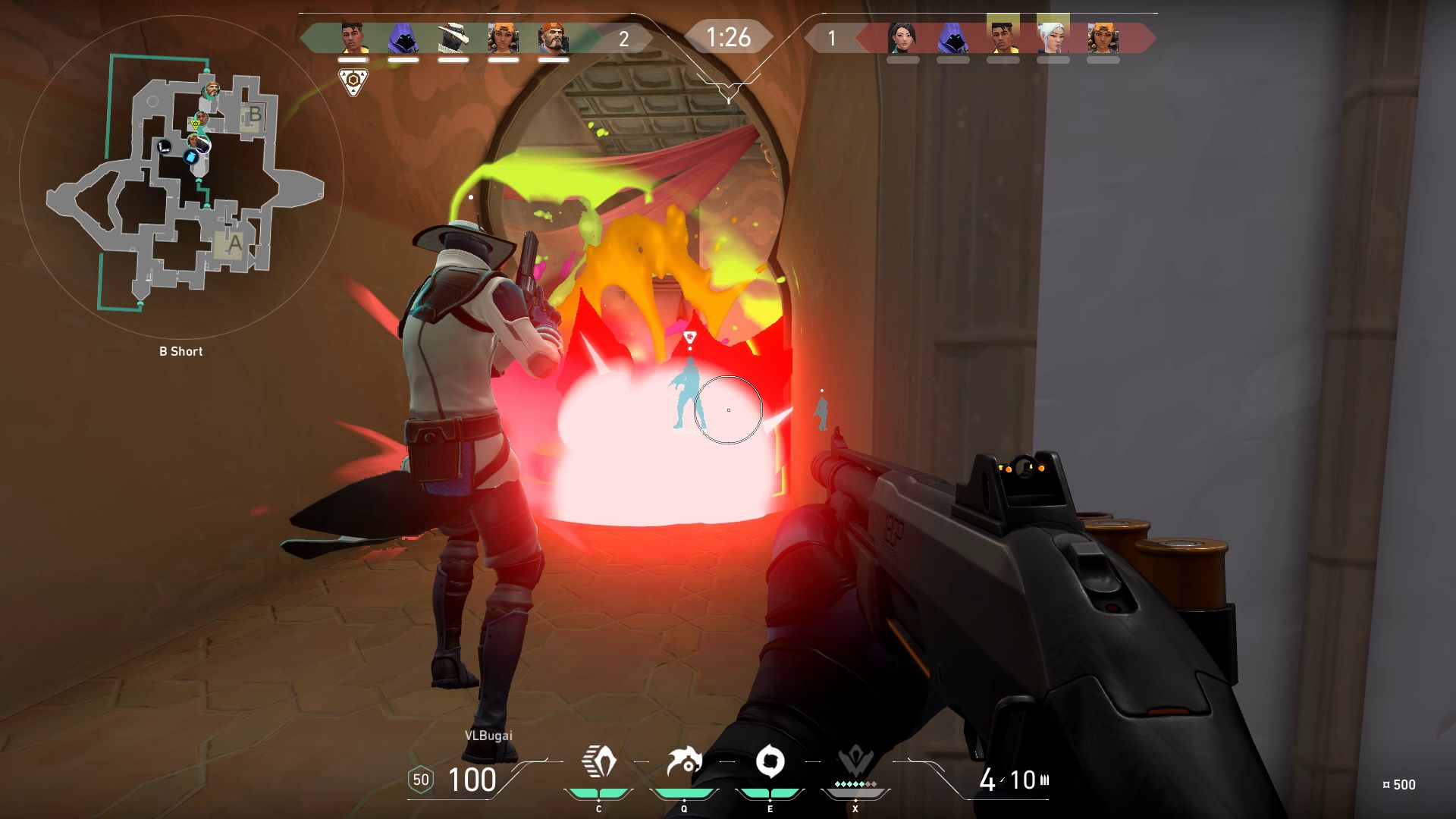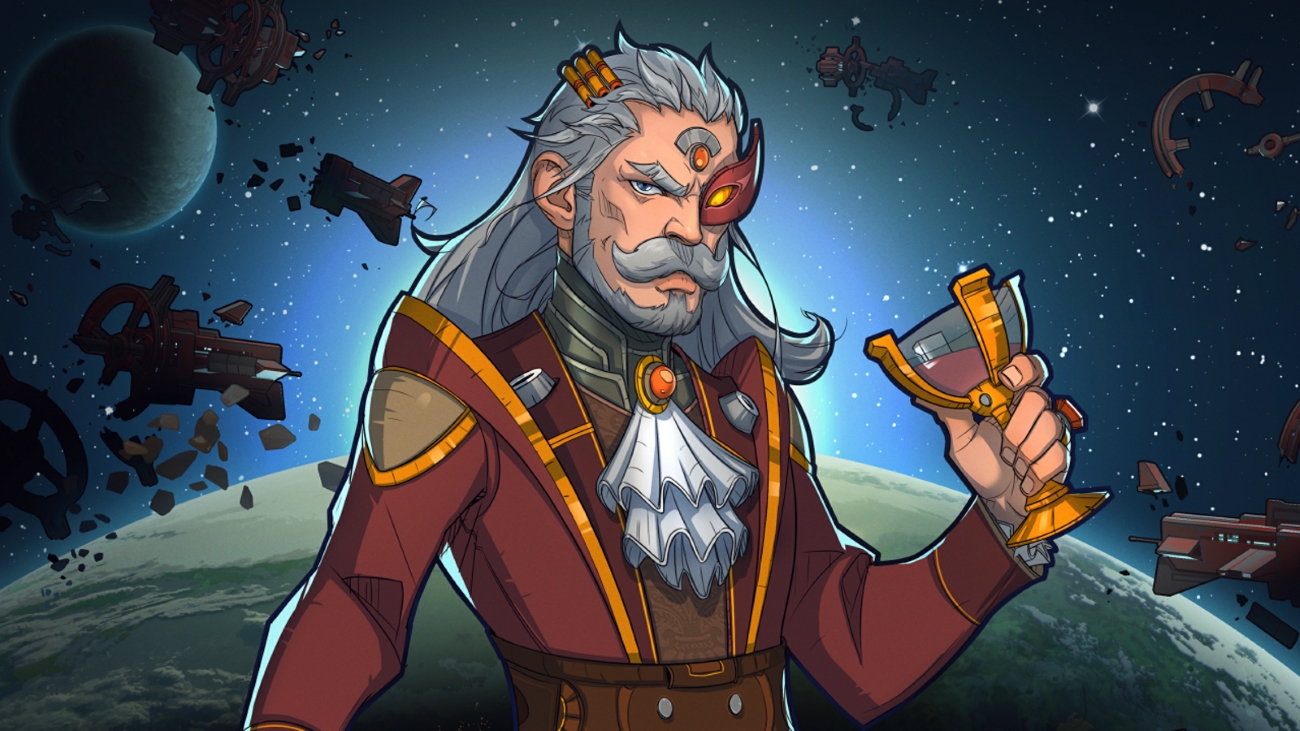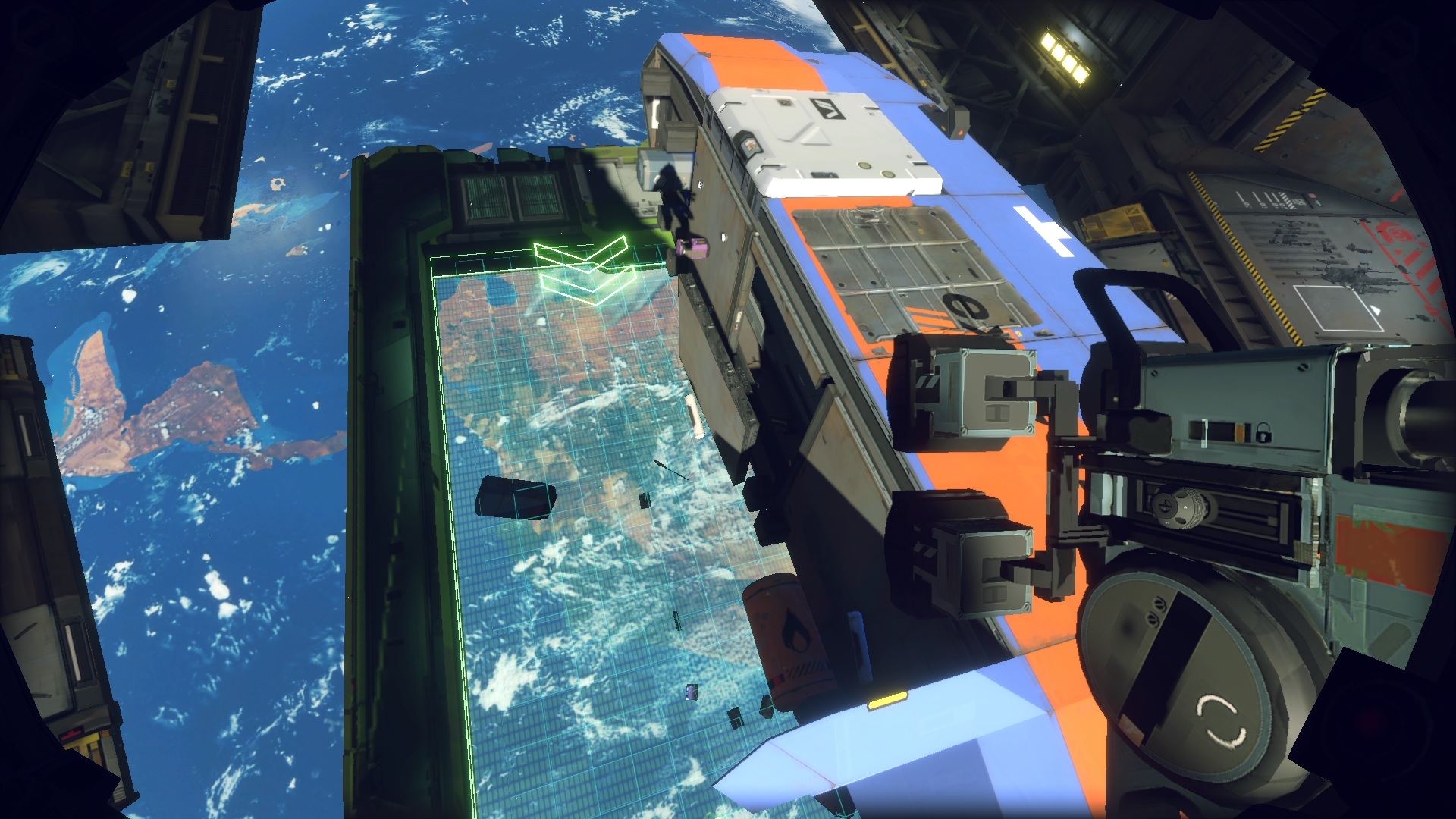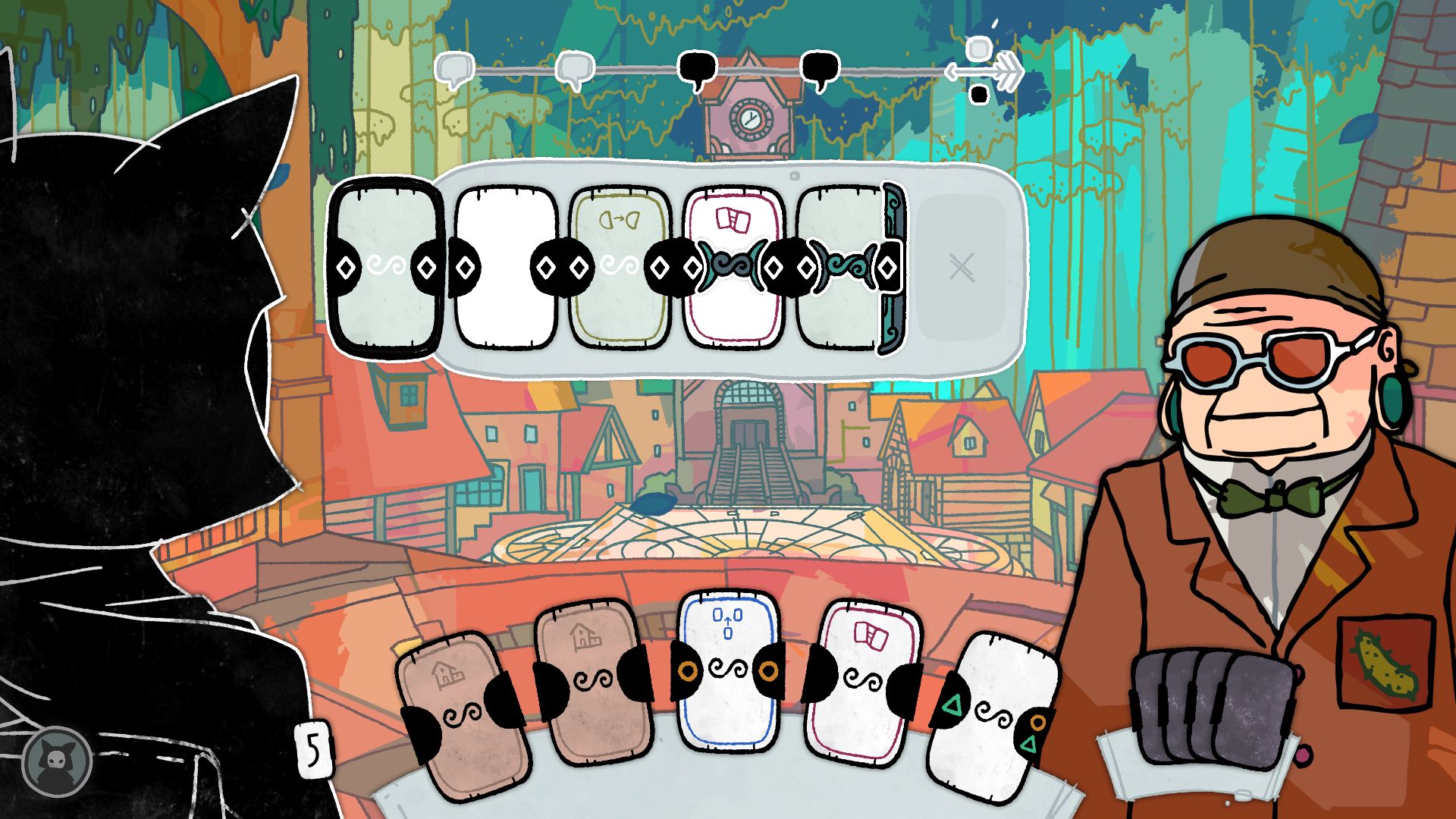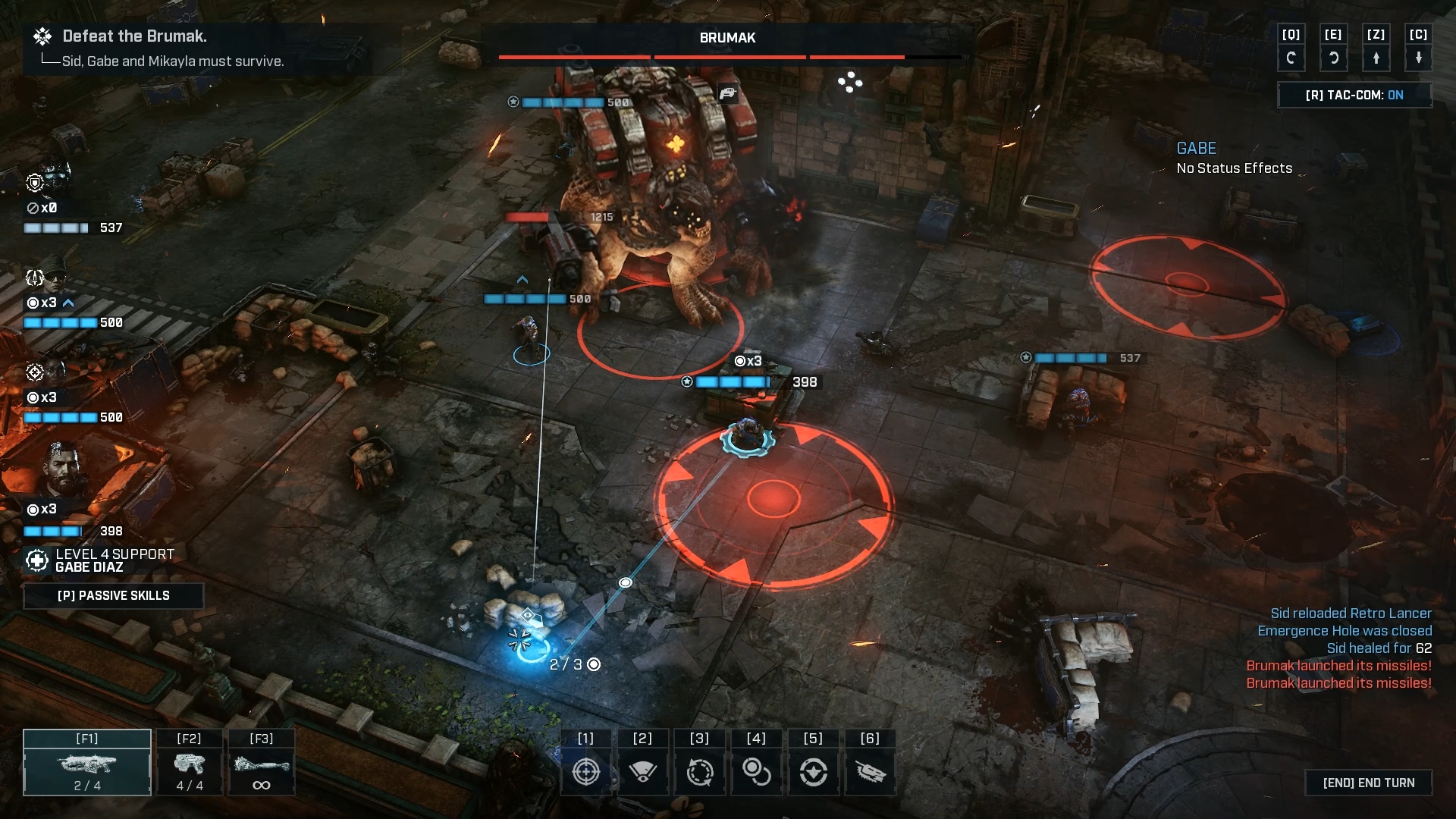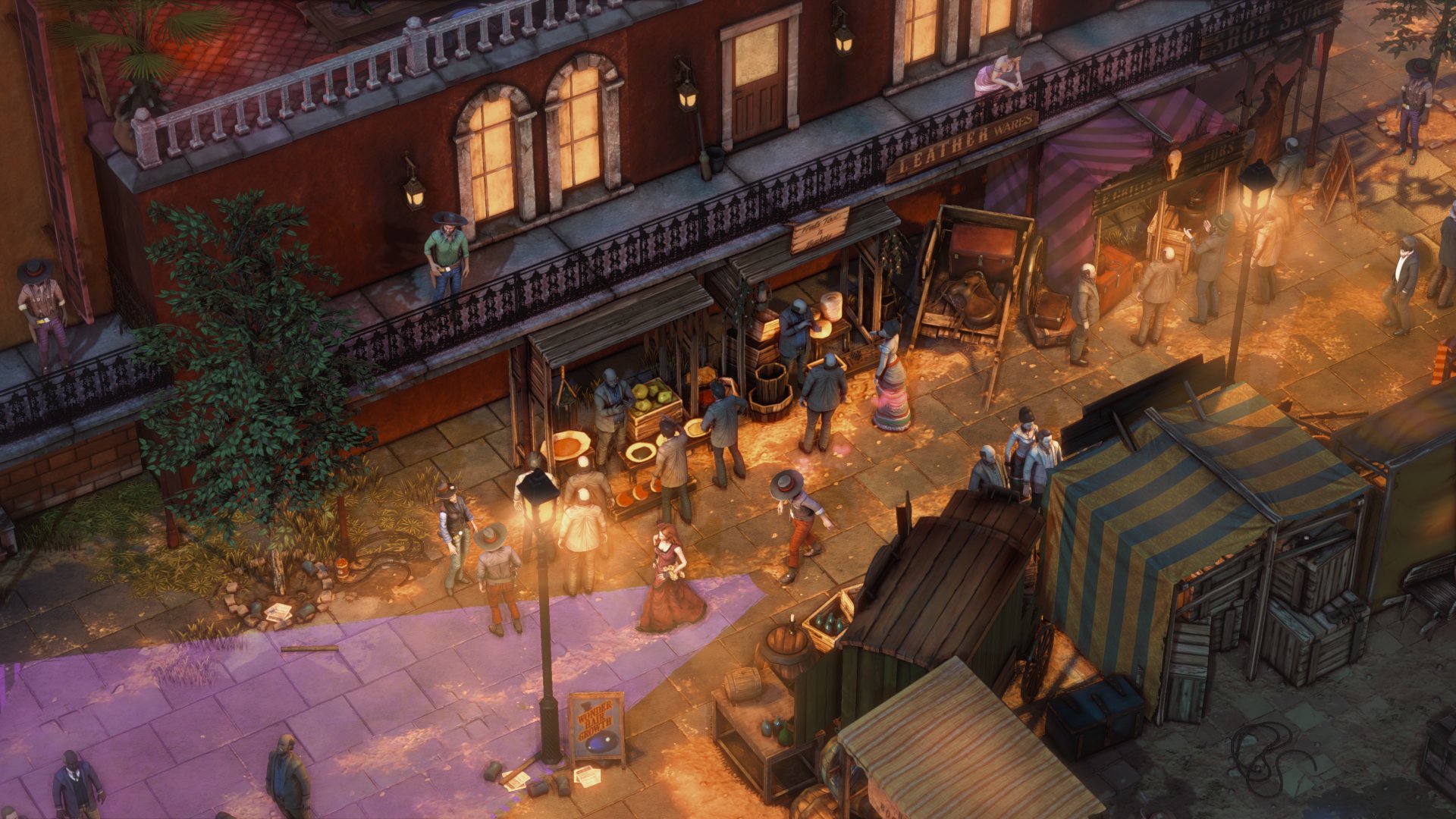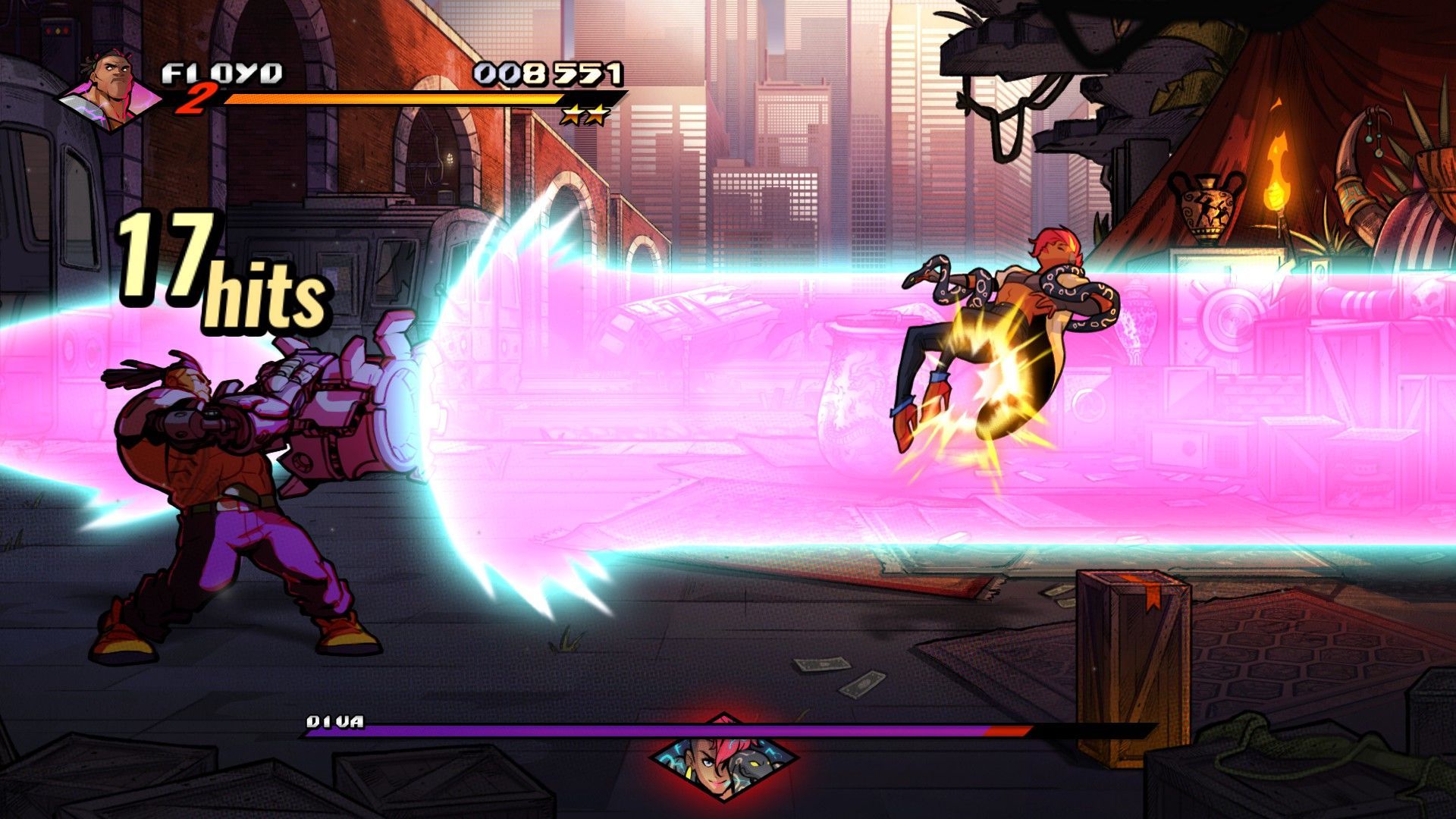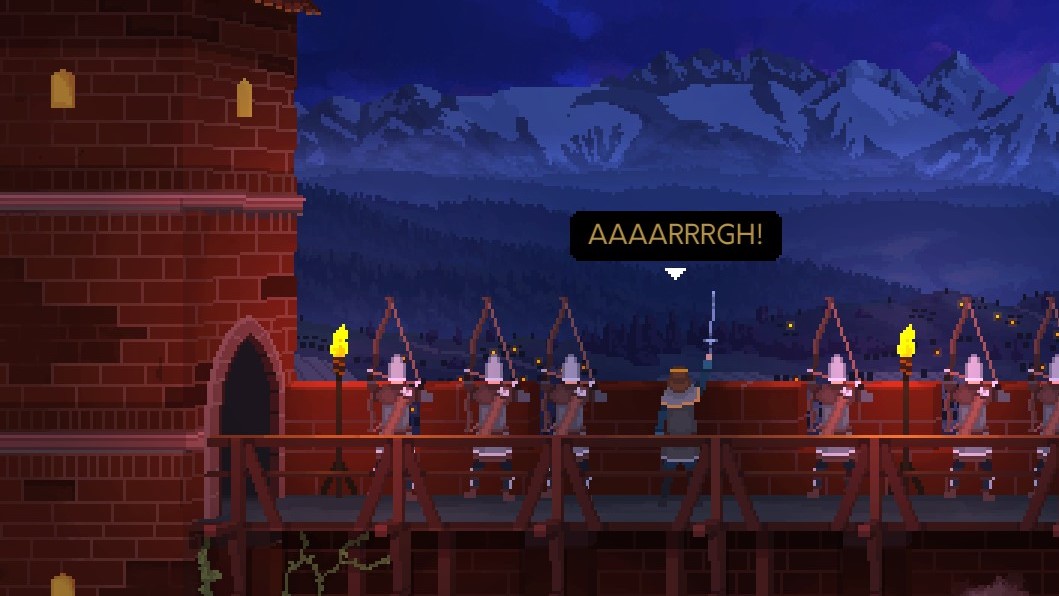Our 15 favourite PC games of 2020 so far
A baker's dozen (plus two)
Halloo, gentle reader. Since we're half way through the entire year of 2020 (yet somehow it is also still March?), we decided to run down, lasso and tie up some of our favourite games from the last six months, and force them into a nice list for you.
2020 still has plenty of new PC games to come, of course, but these are the ones closest to our little hearts so far. We've got strategy, we've got card games, we've got systematic reclamation of scraped spaceships. And, since Nate Crowley is one of the contributors to this list, we've got fish. Statistically speaking, there's bound to be at least one game on here that you'll ruddy bloody love too!
RPS's favourite games of 2020 (so far)
- In Other Waters
- Valorant
- Ori And The Will Of The Wisps
- RimWorld: Royalty
- Hardspace: Shipbreaker
- Signs Of The Sojourner
- Destiny 2: Season Of Arrivals
- Gears Tactics
- Tales From Off-Peak City volume 1
- Monster Train
- Desperados 3
- Ostriv
- Megaquarium - Freshwater Frenzy DLC
- Streets Of Rage 4
- Yes, Your Grace
In Other Waters
Alice Bee: Oh, to swim through an alien sea, observing towering reefs of strange fungal coral plants and the creatures that skitter between them. To catalogue the strange, wispy organisms that form dangerous nets across the deeper waters, and theorise about their bio-electric defence system. To explore the ruins left by divers that came before me, and uncover their strange, sad story.
In Other Waters lets you do that, but you experience the whole thing as the AI powering the diving suit of your xenobiologist explorer. You see the ocean as a topographical map, and the plants and creatures as scientific descriptions. It is a slow, relaxing game, like the gentle action of an archaeologist's brush carefully sweeping away the dirt obscuring a nice pot. You explore and uncover things at your own pace, observing the world but not impacting upon it unduly, and though the story is bittersweet, it is also hopeful. I very much enjoyed this, and can't recommend it enough.
Katharine: I also enjoyed this game's super chill vibes, and I loved how its short but evocative text gave me the space to imagine my own version of these alien shoals inside my head. An In Other Waters book when?
Valorant
Ollie: I almost like the idea of Valorant more than actually playing it. Almost. But playing it, as it turns out, is pretty darn good too. A game that takes the layout and gunplay of Counter-Strike, but breathes new life into the genre with its roster of agents and abilities, you say? I have spent appallingly low amount of time playing any other game since I first got into Valorant’s closed beta.
The abilities themselves are inspired, and probably the very best thing about Valorant. They provide a stunning amount of utility without ever outshining the firing of a bullet into an enemy’s brainpan. Each agent’s skillset serves to give you more options for each encounter, not just as an upgrade to your weaponry. And as a result, the formulating of plans and tactics in a round of Valorant feels like picking apart a challenging puzzle as a group. It’s mighty enriching, and when the plan works, Valorant feels better than almost any game I can remember.
Imogen: One of my favourite things about Valorant is actually that I'm not very good at it. I've played with some friends that are very good, but I found the way they play quite boring. That's the thing with these sorts of games: once people settle into it and know all the good places you should be standing and putting your abilities, they become quite predictable. When you play at lower ranks, however, you can get away with more silly strategies. And, as Ollie touches on, pulling off a well-executed play feels truly wonderful. Even losing a fight doesn't tend to feel too devastating. The tactical nature of Valorant has you reassessing what went wrong, and encourages you to try something new the next time.
Ori And The Will Of The Wisps
Katharine: Ori And The Will Of The Wisps is probably about as perfect a sequel I could have hoped for after Blind Forest. Ori's lithe and acrobatic movements continue to make him one of the most joyous creatures to hurl, zip and throw across his hand-painted surroundings. And this time, Moon Studios really went to town addressing what was arguably one of the weakest components of their first Ori outing, the combat. Out go the feeble spirit zaps. In comes a whacking great hammer, and Ori is all the better for it.
That's not to say Will Of The Wisps is any easier than Blind Forest. If anything, Moon Studios have upped the ante to match Ori's additional firepower, making each encounter a tooth and nail fight for survival. You can often see the influence that other Metroid-alikes have had on the game in the intervening years - Hollow Knight probably having the biggest impact - but Will Of The Wisps is still very much an Ori game at heart, and there are still few games out there that feel this satisfying to play, Hollow Knight included. Plus, Gareth Coker has managed to deliver another corker of a soundtrack with Will Of The Wisps, cementing its status as one of this year's all-time greats.
Video Matthew: I’m not sure it’s as good a Metroid-alike as the first - there’s a bit less interconnectivity in the world than I’d like - but everything else packs more wallop. I actually looked forward to combat in this one, and the grappling hook and burrowing powers make the most acrobatic hero of the last ten years even more flexible.
RimWorld: Royalty
Nate: I’ve sunk a lot of hours into RimWorld over the years, and the surprise release of its first full DLC package this spring sucked me right back into it. Royalty adds a byzantine hierarchy of eccentric space nobility to Ludeon’s colony sim, along with psychic powers and the usual ton of little features that tend to come with RimWorld updates. It also makes RimWorld feel way more like Dune, which is welcome, because Dune is well good.
What’s more, Royalty has already had a major update since its release, which tunes a lot of the missions generated by the new objective system, and revamps the way the psychic system works. It was fun as it was, but I’d argue it’s now got a lot more longevity. Plus, just as was the case with the base game, it’s open to an infinite amount of modding. It truly is the game that keeps on giving.
Hardspace: Shipbreaker
Sin: Should I clear out the seats and the cargo? Or do I want to take the whole roof off? Maybe I’ll just cut a few big holes out and saw everything inside down and tether it out piece by piece. Shipbreaker entered early access just last month, and it’s already an impressively robust simulator of something entirely unique.
On the surface, it’s a drudgery simulator about tidying up. But the work and intellectual challenge of safely cutting spaceships is satisfying and entertaining whether it’s going well or poorly. When things go wrong it’s almost always your own careless fault. Sure, the ships are hazardous and your bosses actually profit from your death, but you have all the tools you need to do everything right.
At this point the only question is how much it’s possible for Blackbird Interactive to add. More ships are a given, but we’ll surely see more game modes and options. Against my habit, I dearly want to see co-op added in future. Imagine working together to haul a giant chunk of spaceship to the furnace, human chaining components through the corridors into the barge, or resolving an argument by playing catch with a reactor.
Alice0: Hard to believe video games spent years enthralled by destruction physics when we could’ve had demolition.
Signs Of The Sojourner
Alice Bee: Signs Of The Sojourner is part card game, part clever language metaphor, part sweet story about growing up and leaving home. After the death of your mum, you have to join the trading caravan she was on to keep your store stocked with exotic goods from other towns - like chocolate, pickles and wine. You purchase these things by playing out a conversation with the vendor, by chaining cards together in a sort of conversational snap. Cards with matching symbols allow you to continue the chain.
It's lovely because you don't think of it as losing or winning, because you're not trying to beat whoever you're talking to. You're trying to have a nice chat. Which is why it's all the more frustrating when you don't!
As you travel further from your home, you pick up new cards with different symbols, and conversations with old friends become harder, because you're changing as a person with every trip you take. It's a very clever, very lovely little game with different twists and turns. Your heartstrings will be tugged.
Destiny 2: Season Of Arrivals
Alice0: After months of dragging its heels and revisiting tired plots, Destiny 2 feels revitalised by the new season. Vast black pyramids hang in the skies, a foe famed for her subtlety is now pushed to act in the open, gangs of boss-tier enemies roam open-world areas, we’re preparing to evacuate several planets, and those ominous pyramids are trying to woo us with the gift of a weird plank of wood which turns people into orbs. Destiny 2 feels exciting and alive again.
Destiny has always held up okay-ish just because it’s such fun to move around and shoot things, but last season I was almost ready to give up after another boring main plot, another boring seasonal mode, and so chuffing many bounties to grind. Now, the seasonal mode and loot system is solid, the unexpected new dungeon is stunning, plots are advancing (and in the game, rather than in written stories), my favourite character is playing a bigger part (our shady spaceuncle, Drifter), the weapons are good, and the fashion is great.
September’s expansion will make clear if Bungie really have managed to turn it around, and I’m still not sure if retiring areas and items will be worth it, but I’m definitely now keen to see.
Gears Tactics
Nate: I didn’t see this game coming, and yet it pretty much consumed all of my free time during the month of May in one big, macho gulp. Gears Tactics is, as its name and the big angry skull cog in the logo might suggest, a tactics game set in the beefy, growly world of Gears Of War. A turn-based tactics game, to be precise, along the lines of the format made popular by X-COM and XCOM (but not, as I must clarify to ward off the lecturers, invented by those games).
You’d think, as I did, that this relatively cerebral game format would be a weird pick for an intellectual property not exactly renowned for demanding a lot of brainwork. But you would, as I was, be wrong. Gears Tactics is a smoothly designed, relentlessly paced squad ‘em up that eschews everything in its genre territory except for actual tactical battling, and does that exceedingly well indeed. Its mechanics are built to emulate the aggressive, horde-mowing-down playstyle of its brick-chinned FPS dad, and you’d be amazed how solidly that comes across in a completely different type of game.
It’s well expensive if you don’t get it through the Xbox game pass, but if you’re after an absolute spectacle of compulsive tactical play, and don’t need it to last forever, I’d recommend it in a heartbeat.
Video Matthew: Squeezing every drop out violence of out those action points is such a good fit for the big ‘humanity’s last hope’ energy of Gears of War. Those are games that are always bellowing about holding the line for one… last… second… but here I actually felt it. Gears should just be this from now on.
Dave: Out of Gears Tactics and XCOM: Chimera Squad, I preferred how Gears Tactics made tactical decisions matter more in the long run, and I still get flashbacks to some of its nail biting scenarios. I just didn’t get the same feeling from Chimera Squad.
Tales From Off-Peak City Volume 1
Nate: Tales From Off-Peak City Volume 1 is a little outside my usual wheelhouse. It’s a game where you wander around a surreal environment vaguely solving a mystery, and it’s got all sorts of clever things to say about the nature of music and stuff like that. I thought it was going to be pretentious and dull, if I’m honest. But I’d not played a Cosmo D game before this one, so I didn’t know just what a treat I was in store for.
For a start, TFOPCV1 (as I will now call it, even though that sounds like something you’d find written on a test tube), is incredibly clever about how it chooses to be incredibly clever. It doesn’t gatekeep in the slightest, but talks to the player in comprehensible, ordinary language about extraordinary things. It’s playful rather than po-faced, goofy in places, and doesn’t give you a hard time if you want to forego all the pondering and just take it in on an aesthetic level. There’s a cool pizza-making minigame, involving flamingo meat. Oh, and the soundtrack absolutely slaps. Cosmo D is an ace musician, and his sounds - combined with his eye for genuinely surreal visuals - make for an unforgettable sense of atmosphere.
Alice0: This is very much in my wheelhouse and: yep, it is great. I’m so glad to have a new Cosmo D convert at RPS.
Monster Train
Alice0: I like that the conceit behind a deck-building dungeon-crawler which split its battles across three levels is: Hell has fallen to invading angels and its fires extinguished, so clans of demons are driving a train with the last spark to reignite its heart. Why not, y’know. Monster Train. Train of monsters.
In the nicest possible way: Monster Train is a lot like Slay The Spire with creatures summons and multiple lanes. But Slay The Spire is great, and its ideas are a great foundation for more dungeoning. Building and refining a deck of spells and abilities into a coherent build is still pleasing, and it’s an even more interesting challenge to make that deck synergise with the creatures you draft and how you arrange them across the train’s three floors. When a deck comes together, it’s a beautiful thing.
In the long run, I think too much of the ‘endgame’ escalates difficulty by making your deck suck in a way I find neither fun nor interesting. I think I’m done with climbing those Covenant ranks. I think a lot of cards are boring or pointless too. And I wish the start of each run had more drafting. But jumping aboard at a low Covenant level to see what wacky deck I’ll build this time is still a lark. Toot toot!
Desperados 3
Video Matthew: Is it wrong to lust after an interface? If it is, then I don’t want to be right. Desperados 3 is a masterclass in communicating everything you need to become a criminal mastermind: the lines of sight and vision cones we’re all familiar with from the genre classics, but with all kinds of sound indicators, weapon ranges and attack lines that give you full control over the dinky wild west dioramas you sneak and stab through.
What elevates this above Shadow Tactics, where Mimimi introduced many of these features, is the introduction of a tactical pause. Showdown mode lets you queue up moves from multiple characters, activating mass stealth manoeuvres with a tap of a button, or triggering phases of an audacious multi-step plan with individual keystrokes. Yes, it’s a riff on their earlier game’s Shadow mode, but that one only slowed time. The ability to take a breather and plot your actions brings a surgical precision to Desperados 3, and your plotting only grows more sophisticated for it.
Of course, it helps that on top of that cleverness this is a great love letter to the western, whipping us from train robberies to bridge vandalism (very The Good, The Bad And The Ugly) via ghost towns beyond the border and sniper battles across gaping canyons. The introduction of a handful of social stealth levels even add a touch of Hitman to proceedings, culminating in a kidnapping at a high society event that feels like a genre highlight. In a world gone crazy, this is a brilliant opportunity to take a breather and seize control of a chaotic situation. Much appreciated.
Ostriv
Sin: Grids are bad. How can I possibly love a place I’ve built if it aligns neatly to a bureaucrat’s safe, standardised angles and layouts? I want a real place, one that grows and changes organically and irrationally, becoming a town shaped by necessity, art, and whim. I also want more games where I can sit back and watch, enjoying the ambience of a society doing its own thing. Responding to whatever interference I provide, but not needing constant supervision to get on with things. Ostriv is a village-building sim that provides both, and it is shaping up wonderfully.
You start a village with 30 or so people in tents, which they gradually take down as you build them homes and warehouses and fishing docks. You pay them to work and they pay for rent and supplies, and must produce what you can and trade for the rest with neighbouring towns.
It’s set at a very comfortable level of complexity for me, having lots to manage but never feeling overwhelming. The wellbeing of my people is paramount: this is not a combative mayoral game about squeezing your people for money. My treasury often has less cash in than the houses of my fishermen, and you can outright give money away at any time to help a struggling family. But most of all I love watching them work, seeing the lake thaw and the snow gradually melt every spring, and following a new family as they immigrate on a little horse and cart.
Megaquarium’s Freshwater Frenzy DLC
Nate: OK, massive self-indulgence time. I love management games, and I love fishkeeping. So I was blatantly going to love Megaquarium, a management game about running an aquarium. And given that my particular obsession is with tropical freshwater fish, this DLC saw me coming from miles and miles away.
It’s really good though, even if you don’t give a flying fart about fish! Megaquarium gives you lots of juicy positioning problems to think about, without ever putting you under too much stress. If anything, in fact, it could use a bit more challenge to it - but then it wouldn’t be so damned relaxing to play.
And hey, if you are into fish, it’s a joy. Obviously, quite a lot of the technicalities of fishkeeping need to be abstracted in order to keep the simulation from being too convoluted for what is otherwise a fairly light management game, but there’s still a decent amount of accuracy left in what it’s been boiled down to. You can breed real guppy strains. Valhalla.
Streets Of Rage 4
Dave: It's been 26 years since we last had an entry in the classic beat-'em-up series Streets Of Rage, so I was very nervous to see if a new one would hold up. I’m very thankful that it turned out as good as it did.
The cartoony art style, with its sharp lines and vibrant colours, works really well in giving Streets Of Rage 4 a distinct look, while not distracting from punching and kicking you way through the streets. The combos provide an incentive to learn how to juggle enemies, especially when playing with two players - smacking bosses back and forth like a tennis rally is immensely satisfying. And while character variety has been a thing in previous Streets of Rage games, here each one of the many characters you can unlock is very different from the next.
My main worry was that the music wasn't going to be as good as Streets Of Rage 2’s stellar soundtrack, but I was pleasantly surprised when I realised I preferred playing Streets Of Rage 4 with the new music rather than having the retro option enabled. The new tunes are that damn good.
But if there’s one thing that cemented my love for this game, it was playing four player co-op with Graham, Nate, and Brendy (RPS in peace). Graham proceeded to "accidentally" throw everyone into each other for the entire game. We bounced around like pinballs flying off bumpers, and it was hilarious!
Yes, Your Grace
Katharine: There are a lot of grim things that happen to you in Brave At Night’s medieval management RPG. As well as trying to weather several invasions on your beleaguered kingdom, you've also got a daughter that's being held hostage by a turd of a boy king, villagers demanding money and supplies everywhere you look, and a wife who insists on performing an incredibly dodgy childbirth ritual to try and break a curse that's, so far, prevented you from producing a safe and true heir to the throne. It's a lot to deal with, but no matter how bleak things get in Yes, Your Grace, Brave At Night always manage to find a way to make you smile and believe that everything might just be all right.
Whether it's the absurd choice of deciding to let my dearest, youngest daughter have a pet bear cub as a 'secret agent', or healing an itchy peasant by inadvertently passing on his fleas / horrible rash to myself, each petition you face as the king of Davern has its own comedic charm to lighten the mood. There's always going to be someone you'll have to disappoint given your meagre supplies, but constantly being up against the wall like this is precisely what makes Yes, Your Grace so brilliant. Instead of agonising over every decision, it gives you the freedom to take bigger and bigger risks, throwing caution to the wind just to see what might happen. So what if a bear cub isn’t a suitable pet? We might all get ballista-ed tomorrow, so we might as well have some fun while we still can, right?
Best of all, though, it pays to be kind in Yes, Your Grace, and it's refreshing to have your good deeds rewarded for once. So often the virtuous path isn't nearly as interesting as the villainous one in Game Of Thrones-alikes, but here your compassion really counts. And even if it does all go horribly wrong, at least you know you did your best and your people loved you for it.
